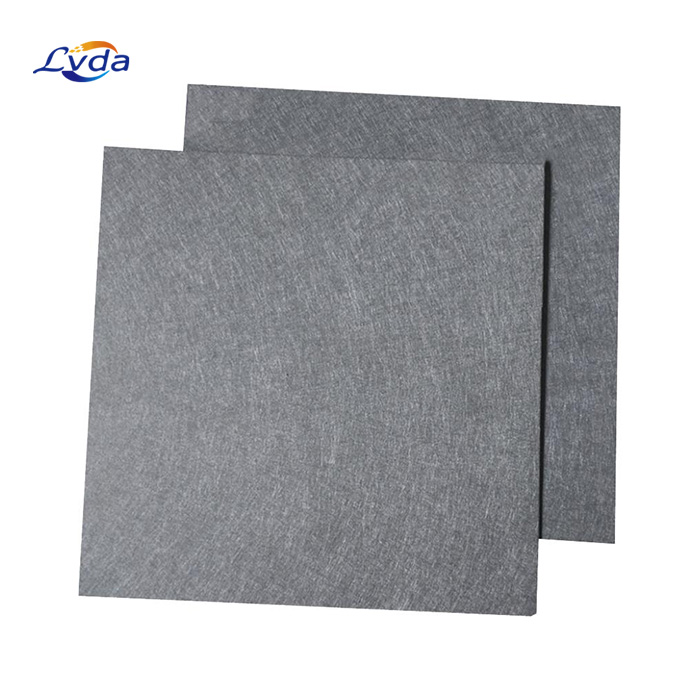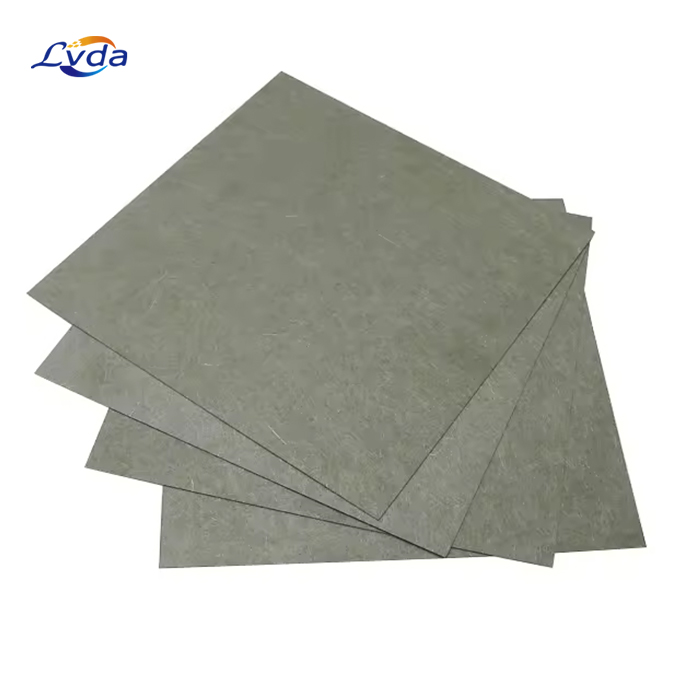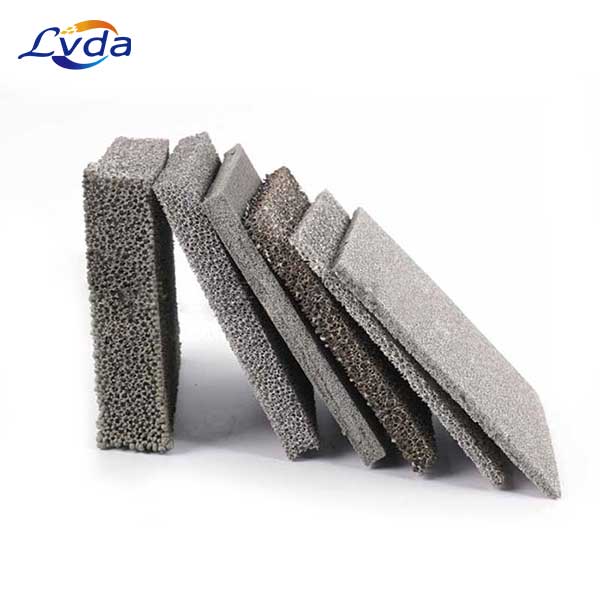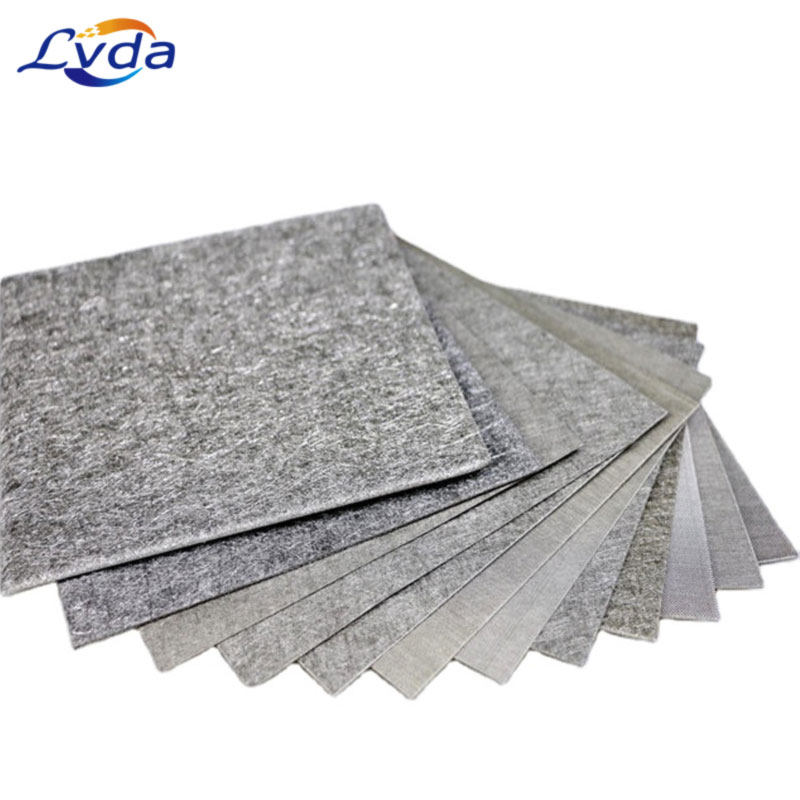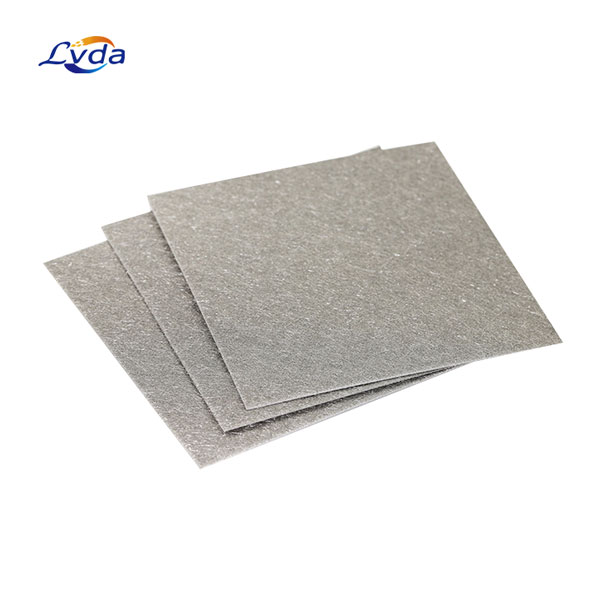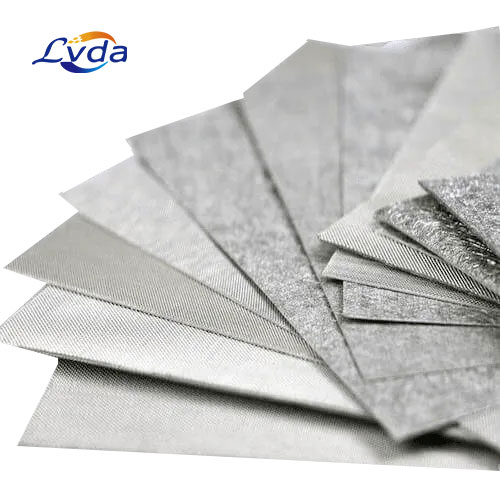Product Details
Sintered pure titanium fiber felt is a high-quality, corrosion-resistant material with excellent filtering properties, making it an ideal choice for gas filters. The felt is available in a range of thicknesses from 0.2mm to 2 mm and porosity from 60% to 80%. The pure titanium composition ensures excellent resistance to a wide range of chemicals and environments, making it suitable for various applications such as industrial gas treatment, air filtration, and chemical processing.
Parameters
Color : Light gray
Material : Pure titanium
Porosity : 60%-80%
Thickness : 0.2-2mm
Size : Customized
Filtration rating : 2.5-120μm
Type : Sintered fiber felt
MOQ : 1 piece
Features of Sintered Pure Titanium Fiber Felt
1. Corrosion resistance. Titanium is known for its excellent corrosion resistance, making the sintered pure titanium fiber felt an ideal choice for use in aggressive environments. It can withstand exposure to various chemicals and acids without losing its structural integrity.
2. High porosity. The sintered pure titanium fiber felt has a porosity of 80%, which provides an extensive surface area for gas filtering. The high porosity enables the felt to capture and remove particles effectively, ensuring clean and safe gas flow.
3. High temperature resistance. Sintered pure titanium fiber felt can withstand high temperatures, making it suitable for use in applications where the gas temperature may rise. Its temperature resistance makes it a versatile material for various industries, including chemical processing, semiconductor manufacturing, and aerospace.
4. Flexibility and customizability. The sintered pure titanium fiber felt can be easily cut and shaped to fit specific gas filter designs. Its flexibility allows for customization to meet the unique requirements of different applications.
Benefits of Using Sintered Pure Titanium Fiber Felt in Gas Filter
1. Improved filtration efficiency. The high porosity and extensive surface area of the sintered pure titanium fiber felt result in improved filtration efficiency. The felt can effectively capture and remove particles from the gas stream, ensuring clean and safe gas flow.
2. Reduced maintenance costs. The corrosion resistance and durability of sintered pure titanium fiber felt result in longer service life and reduced maintenance costs compared to other filtering materials. This makes it a cost-effective solution for gas filtering applications.
3. Enhanced safety. The use of sintered pure titanium fiber felt in gas filters helps to prevent the release of hazardous particles into the environment, ensuring a safer working environment for personnel and reducing the risk of equipment damage.
4. Compliance with regulations. The high-quality sintered pure titanium fiber felt used in gas filters helps to meet environmental regulations and industry standards, ensuring compliance and reducing the risk of penalties or fines.
Manufacturing Process
The manufacturing process of sintered pure titanium fiber felt involves several key steps:
1. Material selection. High-quality titanium fibers are chosen as the base material due to their purity and corrosion resistance.
2. Forming. The titanium fibers are laid out in a uniform manner to achieve the desired thickness and porosity.
3. Sintering. The fibers are heated to a high temperature without melting them. This causes the fibers to bond together at their contact points, forming a strong, porous structure.
4. Cooling. The sintered felt is allowed to cool slowly to prevent thermal stresses that could affect its mechanical properties.
5. Finishing. The material may be cut to size, cleaned, and inspected to ensure it meets the required specifications before being packaged for distribution.
Applications
The high quality corrosion resistant 0.2 to 2 mm thickness 60% to 80% porosity sintered pure titanium fiber felt is used in various industries where efficient gas filtration is critical. Some common applications include:
1. Aerospace. In aircraft and spacecraft systems, where high-performance filtration is essential and weight is a concern.
2. Chemical processing. In chemical plants handling corrosive gases, where the material's resistance to chemicals is crucial.
3. Environmental control. In air filtration systems for buildings or vehicles, to remove pollutants and improve air quality.
4. Medical devices. In medical equipment such as respirators and anesthesia machines, where precise filtration is necessary for patient safety.

 English
English اللغة العربية
اللغة العربية বাংলা
বাংলা Deutsch
Deutsch Français
Français Bahasa Indonesia
Bahasa Indonesia Русский алфавит
Русский алфавит Español
Español اردو
اردو Português
Português
